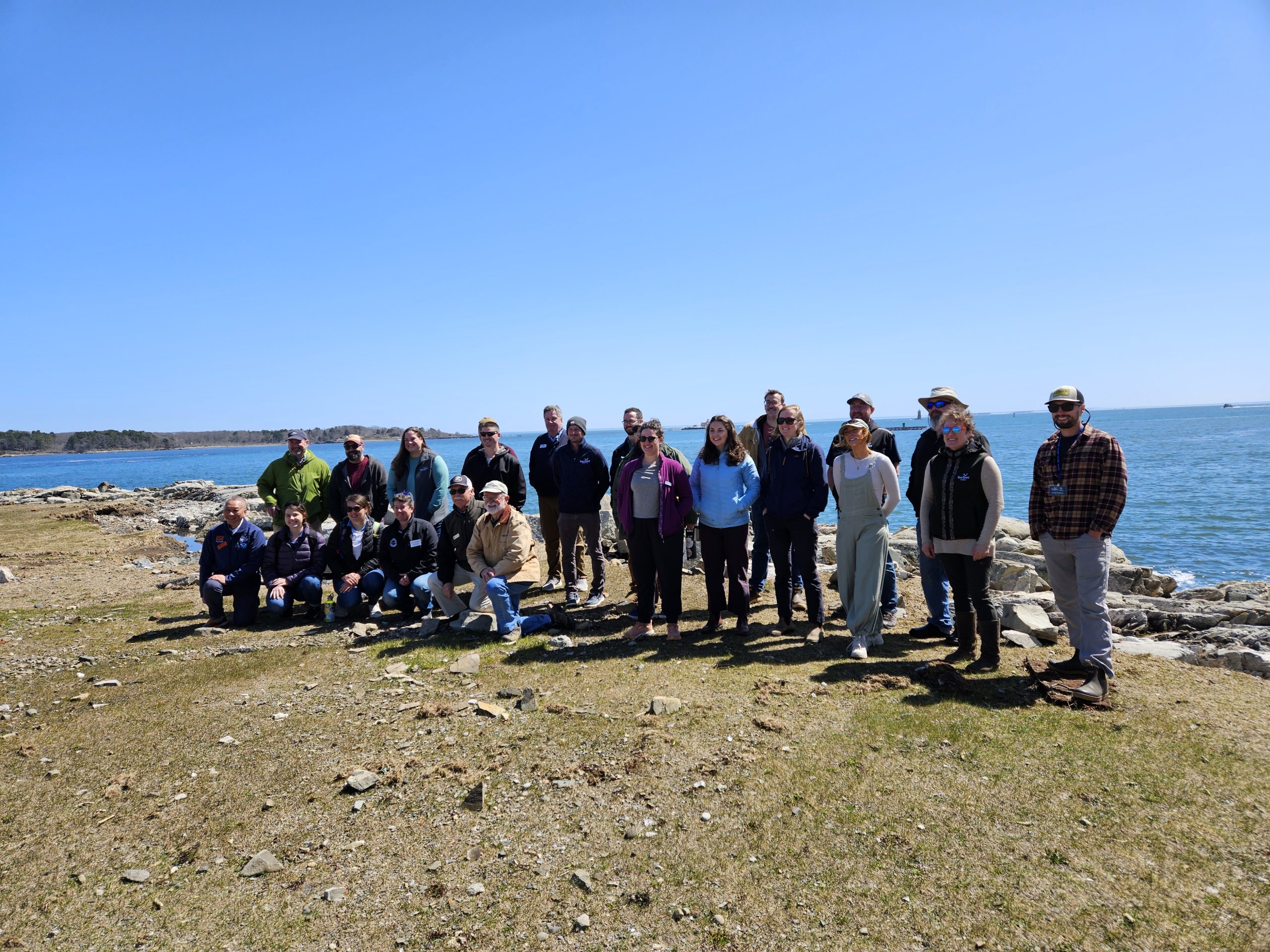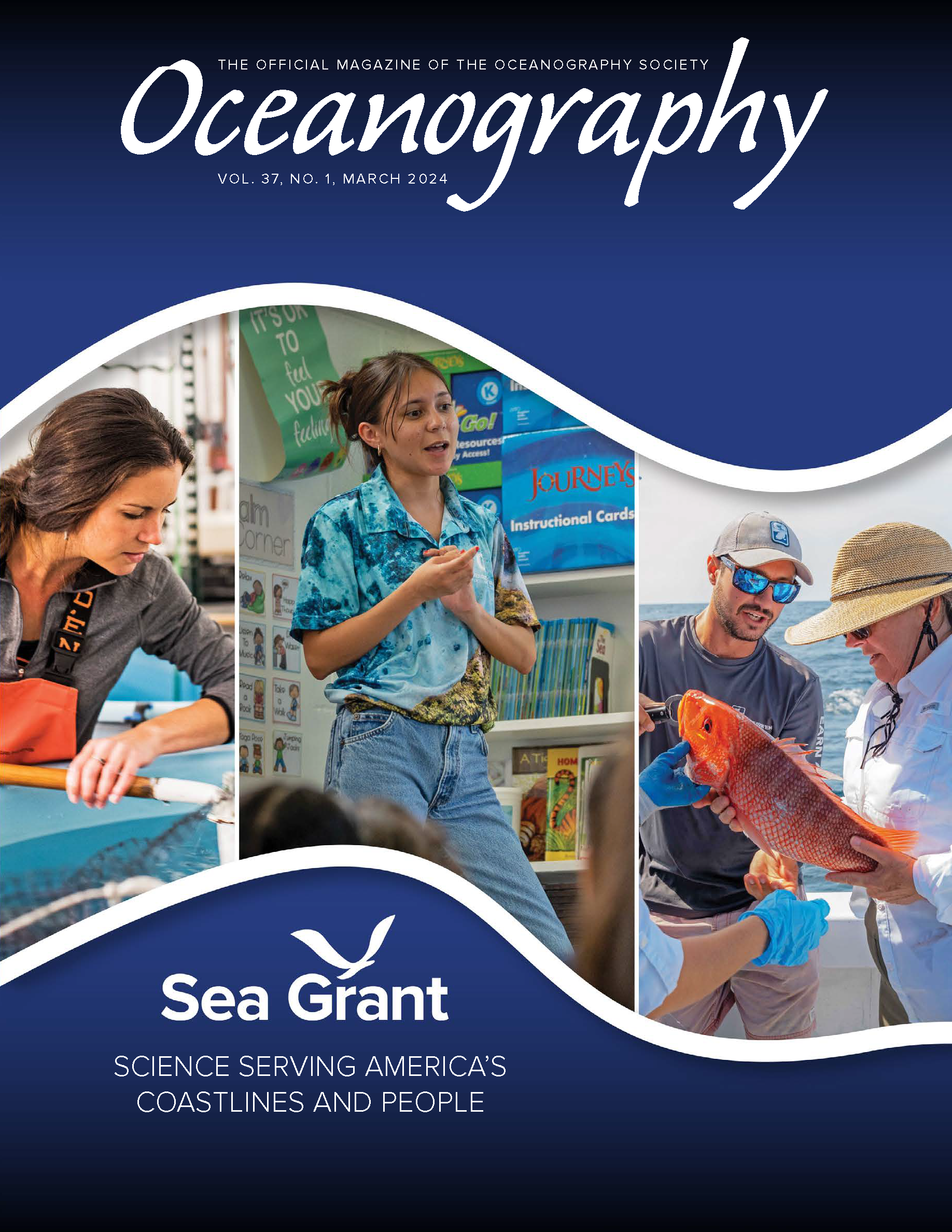
This spring, the Mid-Atlantic regional meeting brought together Sea Grant programs from across the region to share lessons learned and connect individuals within the network. A common theme among the presentations was innovative coastal and community resilience, strengthened by thoughtful relationship building. Continue reading to learn about featured partnership efforts from a few of the Mid-Atlantic Sea Grant programs.
We brought in students because it’s our charge to prepare them for the workplace, and through the program, they build practical skills and get hands-on experience.
Delaware Sea Grant Coastal Resilience Design Studio and Community Resources
Delaware Sea Grant’s Coastal Resilience Design Studio exemplifies the power of partnerships in sustainable workforce development. The program collaborates with the University of Delaware Landscape Architecture program to match design and engineering students with community resilience needs. “We brought in students because it’s our charge to prepare them for the workplace, and through the program, they build practical skills and get hands-on experience,” said Ed Lewandowski, community development specialist. This was initiated by a process known as strategic doing, bringing networks and partners together to tackle coastal resilience challenges, develop a database of these challenges and identify pilot projects for students. Delaware Sea Grant also hosted resource fairs to educate the public on enhancing their resilience before coastal hazards occur. The fairs connected communities to vital assistance programs by partnering with organizations like food pantries, rental and repair assistance, and emergency response programs. “Partnerships are paramount to resilience projects. You pool more resources in partnership with other organizations than you can by yourself,” expressed Emily Rodden, a research associate for resilient urban ecosystems. This project fills a gap by connecting assistance programs to communities so that they are better equipped to respond to climate hazards in the future.
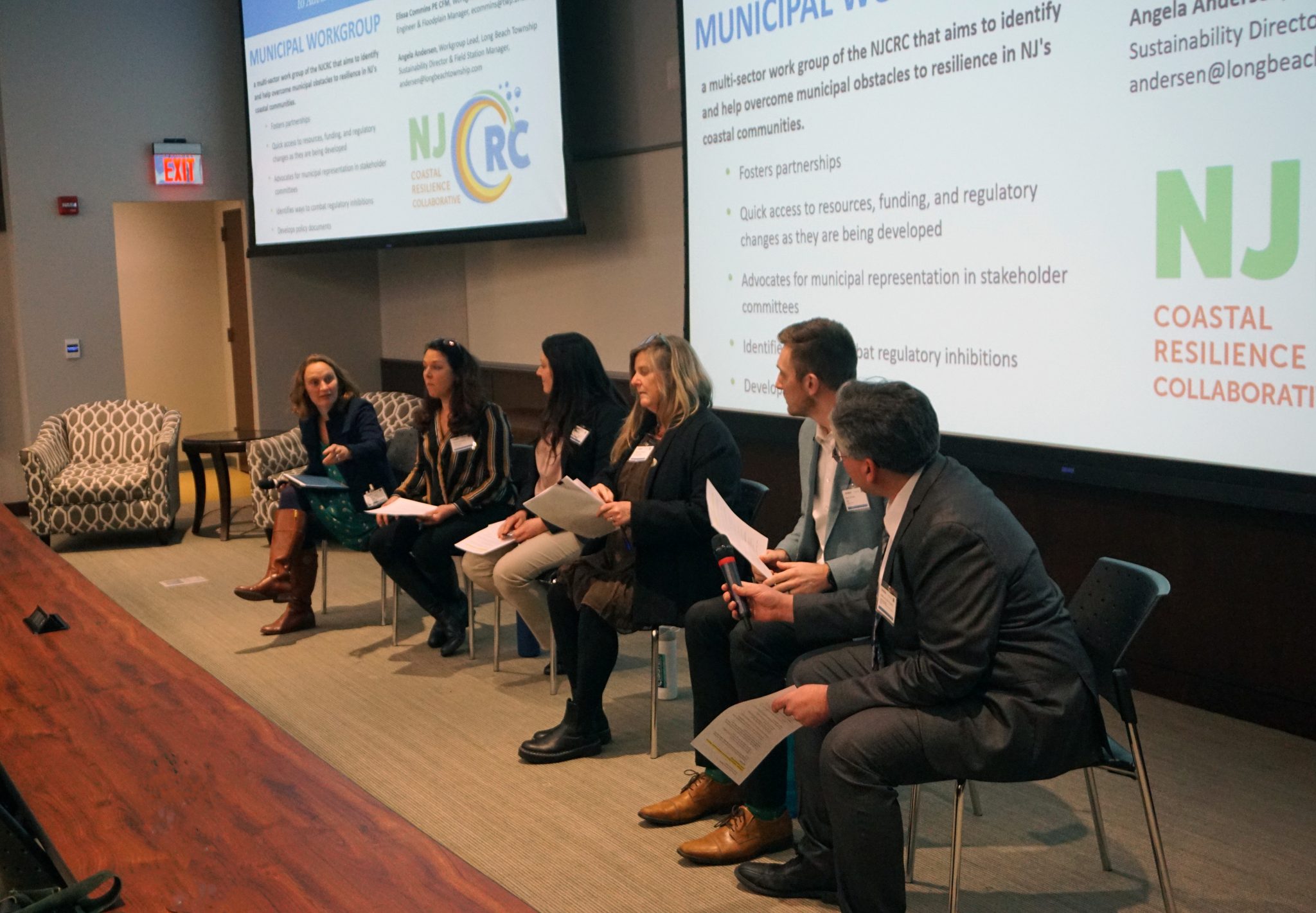

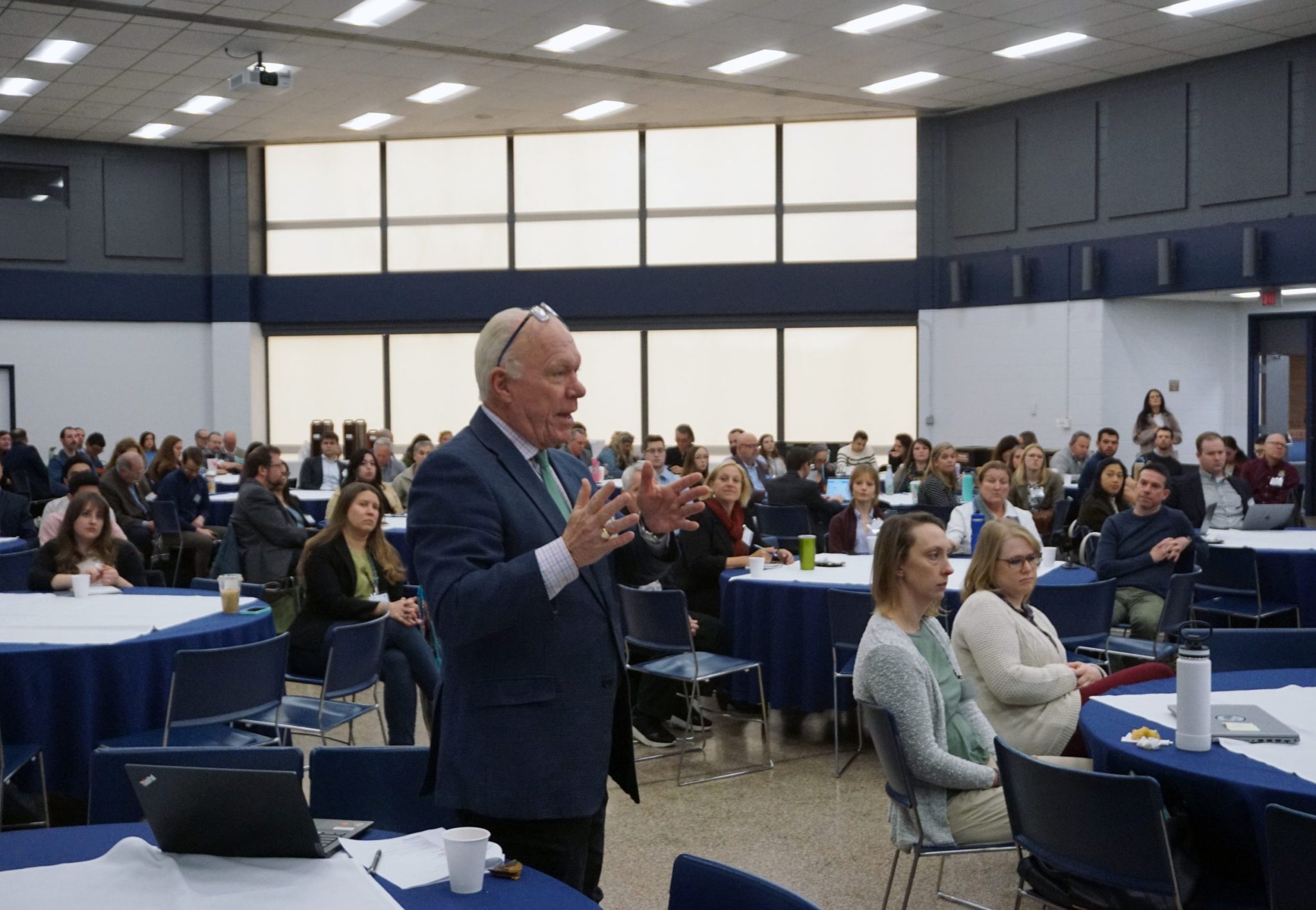

Panelists (left) and audience members (right) share their perspectives at the March 2024 New Jersey Coastal & Climate Resilience Conference. The conference was jointly hosted by the NJCRC and the New Jersey Department of Environmental Protection. (Photo by Karl Vilacoba)
New Jersey Sea Grant Coastal Resilience Collaborative
The New Jersey Coastal Resilience Collaborative aims to foster coastal resilience through informed action with partners across sectors including universities, state and federal agencies, non-profits, and regional planning groups. The Collaborative comprises partner-identified priority working groups that address areas like technical assistance for municipalities, best practices for ecosystem restoration, streamlining the permitting process for implementing resilience projects, providing state-wide conferences and workshops, and resilience communication. Laura Kerr, coastal resilience specialist for the New Jersey Sea Grant Consortium and a managing director of the Collaborative, said she “has seen the benefit of diverse perspectives coming together to tackle the challenges that come with thriving in a changing environment with rising seas and increasing climate hazards.” The Collaborative seeks to advance science to inform policy and enable community action ensuring the future of resilient coastal communities and ecosystems throughout New Jersey.
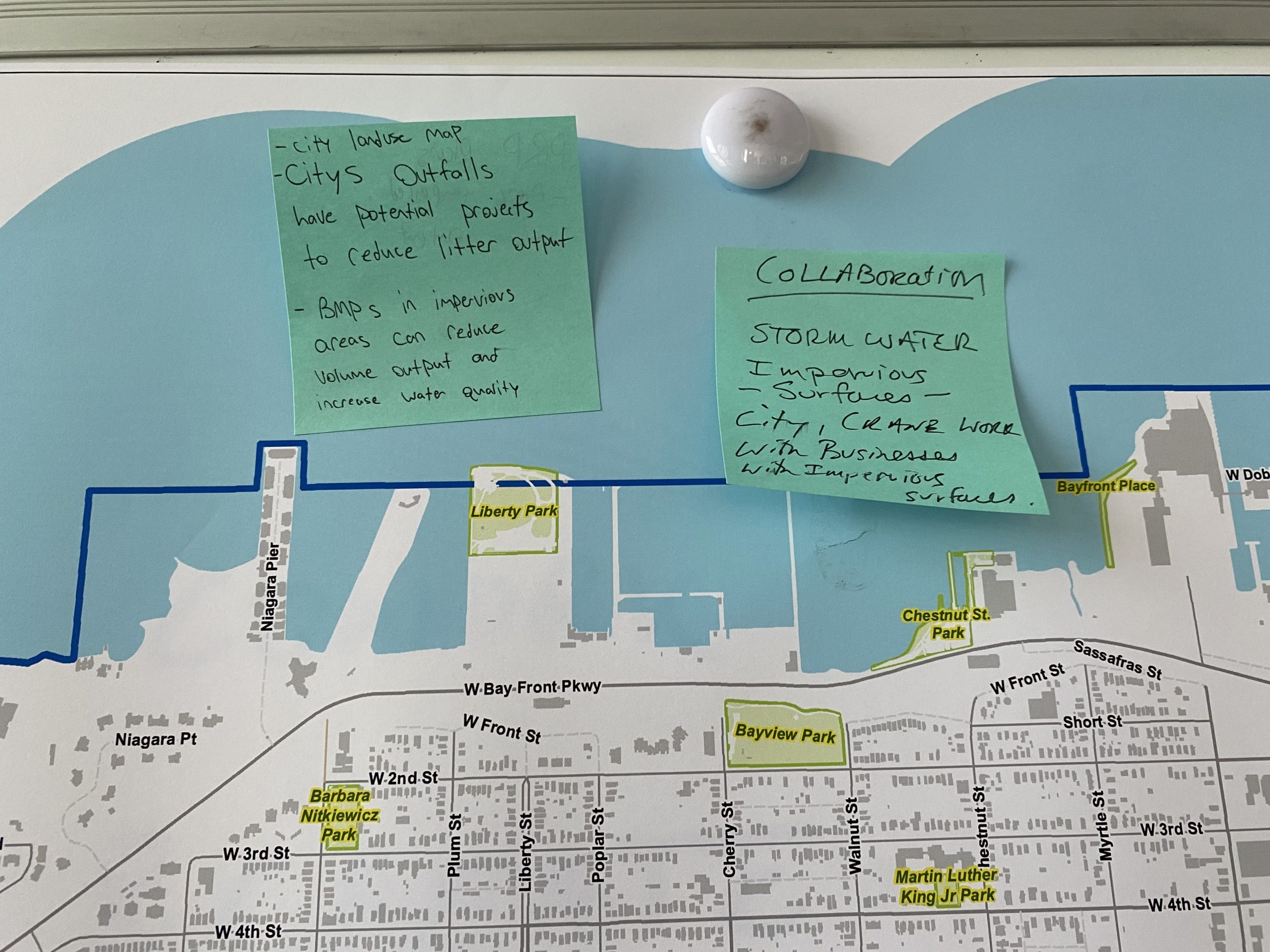

Pennsylvania Sea Grant One Block Toolkit
The One Block at a Time toolkit was developed through a partnership with Pennsylvania, Minnesota, and Illinois-Indiana Sea Grants to foster community collaboration to address climate concerns and co-develop green infrastructure. Sara Stahlman, extension leader, explained, “Partnerships are incredibly important. Without community groups we wouldn’t have been able to make the connections that we did.” She shared that building those relationships often started with informal coffee chats to get to know each other and understand shared concerns. These initial conversations evolved into community visioning sessions that identified where the greatest needs were. The toolkit was developed as a resource to share lessons learned in relationship building, and in all steps of the community engagement process, for more successful projects.
Building conceptual frameworks that integrate knowledge across disciplines can get you to creative design outcomes.
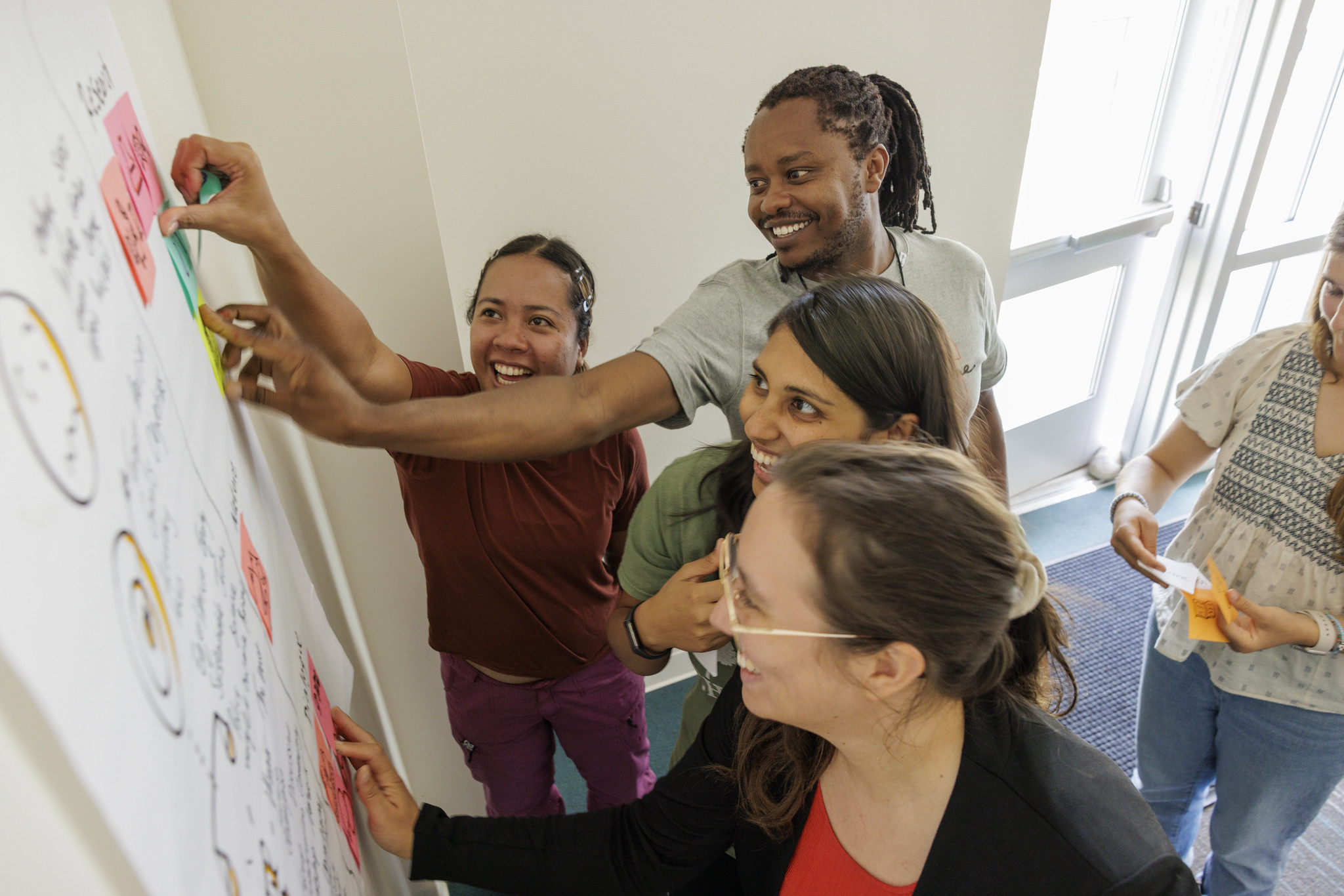

Virginia Sea Grant Resilience, Design and Environmental Justice
Virginia Sea Grant’s approach to resilience involves co-developing solutions to complex needs across multiple disciplines. Director Troy Hartley described a team science initiative that focused on sea level rise adaptation in the minority, historic district of Chesterfield Heights in Norfolk. Students from multiple disciplines collaborated with each other and residents to design solutions, including living shorelines and stormwater and green infrastructure upgrades. This project and its success (e.g., a $120M HUD award) has influenced the VASGs approach to resilience challenges. “Building conceptual frameworks that integrate knowledge across disciplines can get you to creative design outcomes. Trans-disciplinary team science drives all our resilience design programming,” explained Troy. Virginia Sea Grant’s coastal adaptation and innovation techniques invest in people and their capacity to employ collaborative strategies and team science to solve complex resilience issues.
Sea Grant programs across the Mid-Atlantic region are strengthening partnerships to co-create lasting solutions for a changing climate. Through listening sessions, technical support and workforce development, these programs ensure that communities have the resilience capacity needed to adapt to new conditions.


Katrina Lewandowski
Coastal Resilience Specialist & Knauss Marine Policy Fellow
National Sea Grant Office


Amara Davis
Outreach Coordinator
National Sea Grant Office


Hallee Meltzer
Communications Coordinator
National Sea Grant Office

